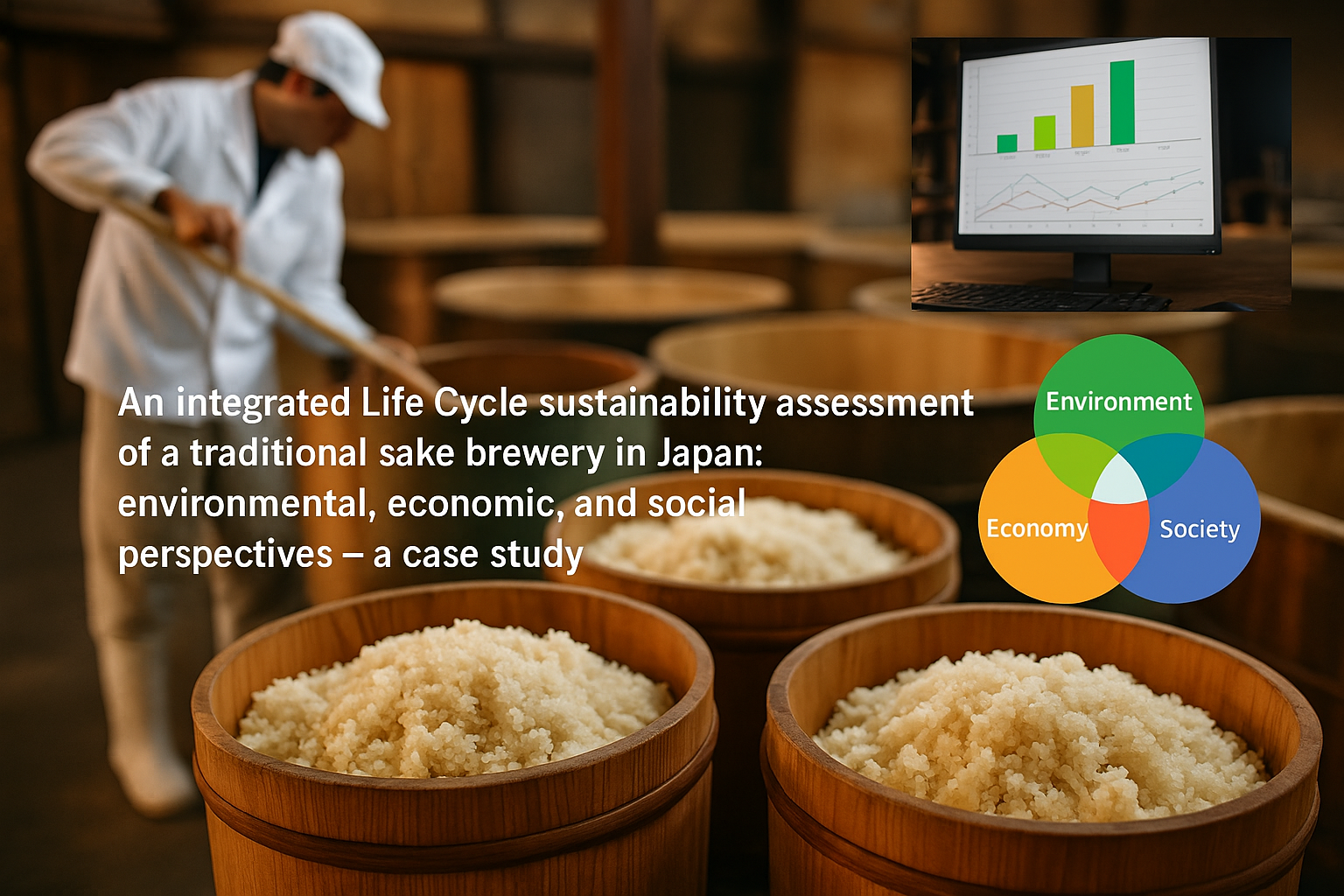持続可能な食品産業を実現するためには、**Design for Environment(DfE:環境配慮設計)**の実践が欠かせません。これまでの研究は主に技術面や戦略面に焦点を当ててきましたが、実際の導入にあたっては、組織体制や従業員の行動・意識も大きな役割を果たします。本研究では、日本の食品産業を対象に、組織的支援、環境管理担当者の関与、環境リテラシー、従業員のモチベーションといった要素がDfE戦略の成功にどのように寄与するかを調査しました。
調査と分析の方法
構造化したアンケート調査を食品産業の専門家に実施し、得られたデータを**ノンパラメトリック統計手法(Wilcoxon順位和検定、Fisherの正確確率検定など)**で分析しました。測定には、組織支援、環境管理担当者の関与、環境リテラシー、従業員モチベーションの水準を把握できる既存の尺度を用いました。
主な結果
- 組織的支援は高い水準で存在していたものの、実務レベルでは部門間の連携不足や運用上の障壁が、戦略的意図を実効的な取り組みに結びつける妨げとなっていました。
- 環境管理担当者の積極的な関与と従業員の高いモチベーションは、DfE導入を推進する重要な原動力であることが明らかになりました。
- 特に、社内コミュニケーションの仕組みやインセンティブ制度が従業員の関与を高める要因として作用していました。
学術的・実務的な貢献
本研究は、DfE導入における組織的・行動的要因の役割を理論的に明らかにするとともに、業界データを用いた統計的検証を行った点で学術的に貢献しています。さらに、企業にとっては「戦略的な支援」と「現場での運用改善」を組み合わせることの重要性を示し、環境持続性を競争優位性と結びつける企業文化を育む必要性を浮き彫りにしました。
The adoption of Design for Environment (DfE) practices is essential for promoting sustainability in the food industry. While previous research has primarily focused on the technical and strategic aspects of DfE implementation, there is limited empirical evidence on how organizational and employee-related factors—particularly the roles of environmental management personnel and employee motivation—influence DfE integration, especially in the Japanese food industry. To address this gap, this study investigates how organizational support, environmental management personnel involvement, environmental literacy, and employee motivation contribute to the successful adoption of DfE strategies.
A structured questionnaire survey was conducted among professionals in the Japanese food industry, and the collected data were analyzed using non-parametric statistical methods, including the Wilcoxon rank-sum test and Fisher’s exact test. Validated measurement instruments were employed to assess the levels of organizational support, the engagement of environmental management personnel, environmental literacy, and employee motivation. The results reveal that while organizational support for DfE is generally high, operational barriers and limited cross-departmental collaboration hinder the translation of strategic intentions into effective practices. Furthermore, the active involvement of environmental management personnel and high levels of employee motivation were identified as critical drivers of successful DfE adoption, with communication and incentive systems playing key roles in enhancing employee engagement.
This study offers several contributions to the field of sustainable business practices. Theoretically, it advances understanding of the organizational and behavioral factors shaping DfE adoption. Methodologically, it demonstrates the application of non-parametric analysis to assess these factors within an industry context. Practically, the findings provide insights for companies aiming to enhance their environmental performance by integrating strategic support with operational improvements. Managerially, the study highlights the importance of fostering a corporate culture that links environmental sustainability with competitive advantage.
雑誌名
Journal of Cleaner Production
発表タイトル
Exploring the Factors Influencing the Adoption of Design for Environment (DfE) in the Japanese Food Industry
著者名
Yuna Seo, Naoto Shirasawa
引用
Seo, Y., Shirasawa, N. (2025).Exploring the Factors Influencing the Adoption of Design for Environment (DfE) in the Japanese Food Industry. Journal of Cleaner Production, 145900. https://doi.org/10.1016/j.jclepro.2025.145900



